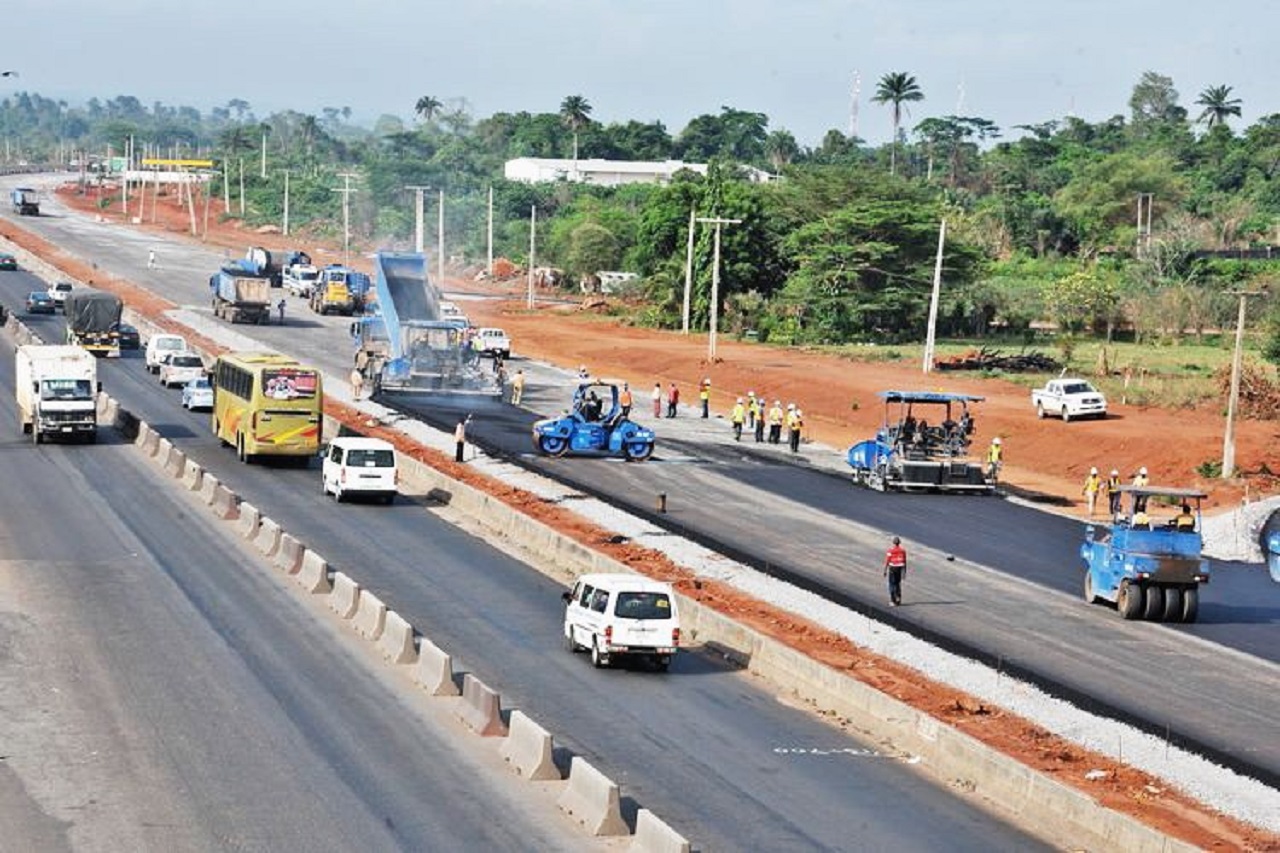- 43KM Lagos-Ibadan Expressway Reconstructed, Open for Use
The reconstruction of the Lagos-Ibadan Expressway, spanning 43km, has reached 40% completion, says Federal Controller of Works, Mr. Adedamola Kuti.
He stated this recently at KM 15, the site of the MFM Prayer City Magboro, while on tour with representatives of the Federal Ministry of Power, Works and Housing and other stakeholders.
He said the 1st section of the road which is from Ojota old toll gate to Shagamu is now opened for use and urged Nigerians to appreciate the efforts channelled by the contractor to ensure that the project was completed in good time.
He explained to Nigerians that the gridlock which occurred recently was as a result of the ongoing work on the road. This was uncalled for, if road users had adhered to traffic rules, he said.
Kuti stated that Lagos-Ibadan Expressway is the busiest road in Africa. The busiest part is the Ojota-Shagamu, which was under construction, and required road users to drive at 50km per hour, failure to comply with this as well as breakdown of vehicles, will result in gridlock. Nigerians need to be disciplined, running 5 lanes instead of 2, or following 1-way is definitely not the solution, he said.
He assured Nigerians that funding of the project is not an issue as the Presidency has set aside funds under Nigeria Sovereign Investment Authority, NSIA, to ensure the success of the project.
The Sector Commander, FRSC, Ogun State, Mr. Clement Oladele, stated that road users indiscipline and age of articulated vehicles all resulted in the breakdown and crashes on our roads. Rapid response to these breakdown and crashes is hindered by this road construction, as towing vehicles and cranes have difficulties in assessing the road.
He urged Nigerians to exercise patience and slow down at construction zones, in order to curtail harm to both themselves as well as other road users. This will ensure smooth driving for everyone.
He reminded them of the National Road Traffic Regulation of 2012 which specified that at construction zones, road users should not exceed 50km per hour. This regulation was given for 2 reasons; to ensure the safety of construction workers, as well as the Law Enforcement Agents, which includes the emergency officers on duty. Also, road users should not drive against traffic.
Road users who drive against traffic will be apprehended and charged for dangerous driving with penalties, failure to pay these penalties after 6months will result in impounding of the vehicles.
The Regional Technical Manager, Region West, Julius Berger, Mr Thomas Baizuweit, corrected the impression that the attitude of the company towards the project was lethargic but rather the opposite.
A very robust and professional traffic management system, both FRSC and Julius Berger safety team has been put in place to safely channel the flow of traffic at construction site. Also a review of the road situation is ongoing and measures are put in place to increase effectiveness. However, we count on the cooperation of road users and their discipline during this period, and a huge success is guaranteed, he said.

 Billionaire Watch3 weeks ago
Billionaire Watch3 weeks ago
 Startups4 weeks ago
Startups4 weeks ago
 News4 weeks ago
News4 weeks ago
 News4 weeks ago
News4 weeks ago
 Bitcoin4 weeks ago
Bitcoin4 weeks ago
 Naira4 weeks ago
Naira4 weeks ago
 Forex3 weeks ago
Forex3 weeks ago
 Treasury Bills4 weeks ago
Treasury Bills4 weeks ago

























